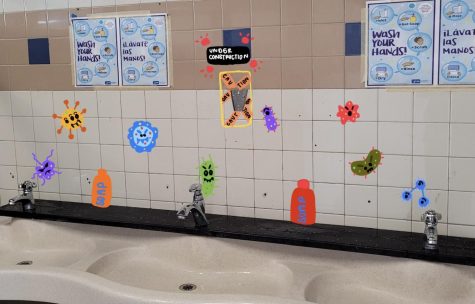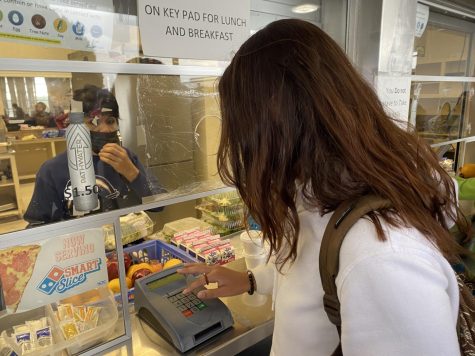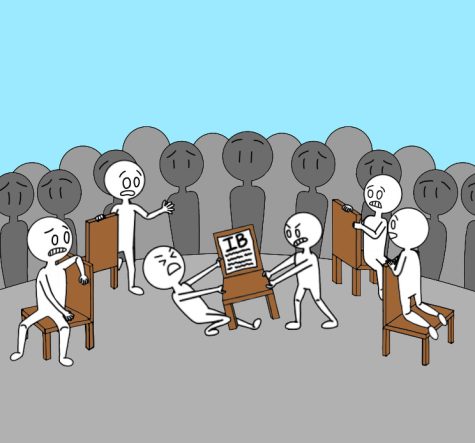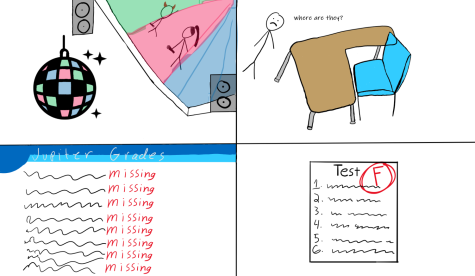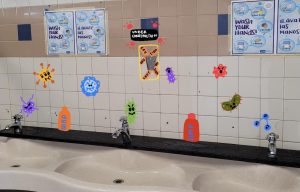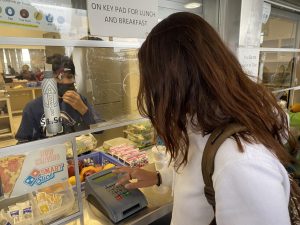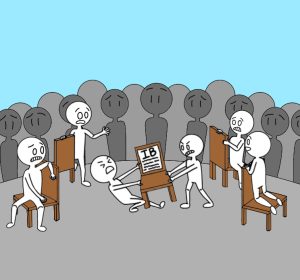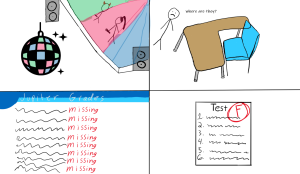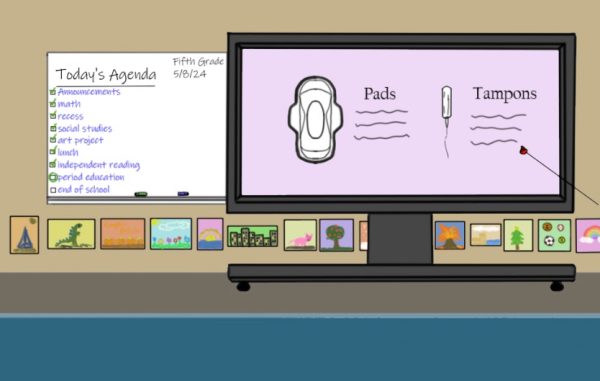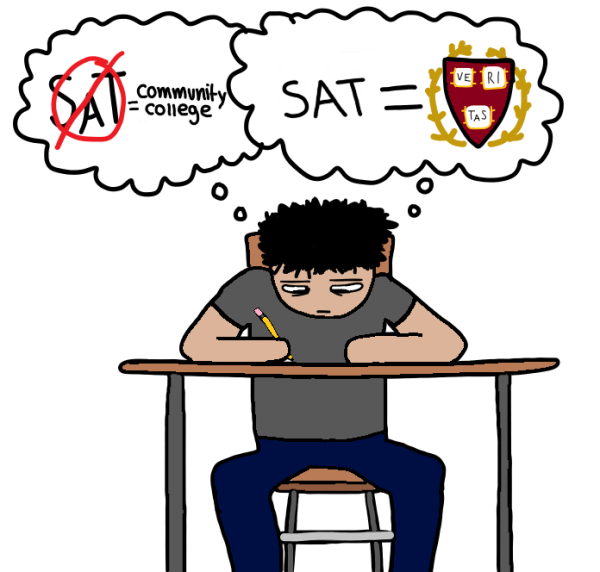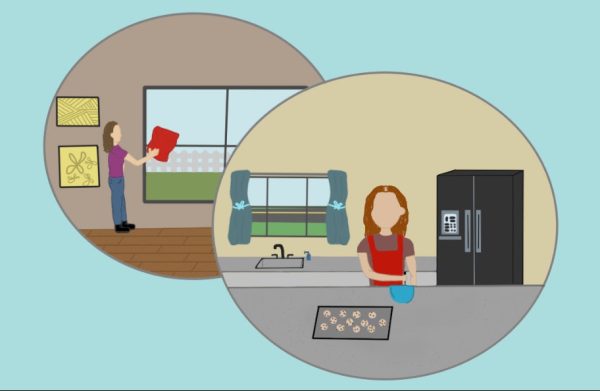Education in the kitchen
The jobs in the cafeteria provides benefits for students
Students have the benefit of monetary incentives while they work in the cafeteria.
On Oct. 7, Bonita Vista High (BVH) sent out an email prompting students to consider working alongside the cafeteria staff for some extra money.
The email was sent via Jupiter Grades titled “Looking for some extra $?” where the email summarized that BVH was looking for students to work handing out food during lunch and nutrition break. Students work one hour a day, taking up their time for nutrition break and lunch which in turn makes them $15 a day. The email later stated that interested students are to send necessary information, such as their social security card and a Tuberculosis test, to complete their applications.
This email came as a surprise to parents, students and teachers of the BVH community, as an opportunity to work at school is not an option that is offered often to students.
The article, BVH offers jobs to students 16 and older, states that the necessity for more cafeteria staff became apparent as wait times grew longer and lines extended beyond the lunch tables. A new solution was necessary; Sweetwater Union High School District Director for District Nutrition Service Eric Span proposed that hiring students to work in the cafeteria would be a possible solution.
The job consists of helping serve food, which is not a complicated task. The students would be trained and helped by the other employees working, in case of a hard time adjusting to a possibly overwhelming work environment.
Integrating students into the work environment would help them feel more comfortable with the jobs that they may have in the future. The students would follow important instructions by the other chefs to work effectively and feel more reassured in the new environment. This would ultimately better integrate teenagers into society after high school and understand a professional work environment.
Over time, the students employed in the cafeteria will better develop communication skills. It would also better deepen their understanding of what it takes to earn money along with the morals and ethics associated. All of this wrapped together could help pave the road for what they hope to do in the future and also motivate students to push towards certain goals they set in life. It not only will help them learn but it could influence their future for what they want to pursue.
According to Jeylan T. Mortimer, Ph.D., steady work may foster the development of time management skills that serve young people and work experience can promote the healthy development of some young people. As they graduate from high school most students continue to work to support themselves as well as paying tuition for college.
Learning how to properly manage money is crucial to succeed in the future. Knowing how to save and spend will prevent someone from debt and help achieve long-term goals like buying a house or a car. According to a survey conducted by Bankrate.com, many Americans today have a difficult time managing their money though it’s an essential skill for living a comfortable and stress free life. A job for people at a young age, like working in the cafeteria, can allow students to set goals at a young age to live more comfortably as they grow up.
According to an article discussing Why Financial Literacy is important, credit card debt has reached its highest point ever, 40% of Americans can’t afford an $400 emergency expense and nearly half Americans don’t expect to have enough money to retire comfortably. People who have debt don’t have many options for loans due to low credit score which takes away the ability to buy a car or rent an apartment. Having control over money is very important and significant in life, but many people still have a tough time managing money. Working in the cafeteria as a student can help nurture this ability.
Jobs help kids develop a greater sense of self. As teenagers begin to stop financially depending on their parents, they will become more independent. Students’ realization that they will soon be working citizens adds to the development of the individual. Teenagers coming to understanding is a big step in life and helps them recognize not everything comes easy.
The trade off for working in the cafeteria comes from losing free time from lunch and nutrition break, a loss of time studying or hanging out with friends makes time management and scheduling more important.
— Brandon Giles
The trade off for working in the cafeteria comes from losing free time from lunch and nutrition break, a loss of time studying or hanging out with friends makes time management and scheduling more important. Students taking advantage of this opportunity would overall be beneficial for them in the long run and help jumpstart their future.

I am a junior at Bonita Vista High and this is my first year on staff for the Crusader. I joined the newspaper because of an interest that was inspired...


